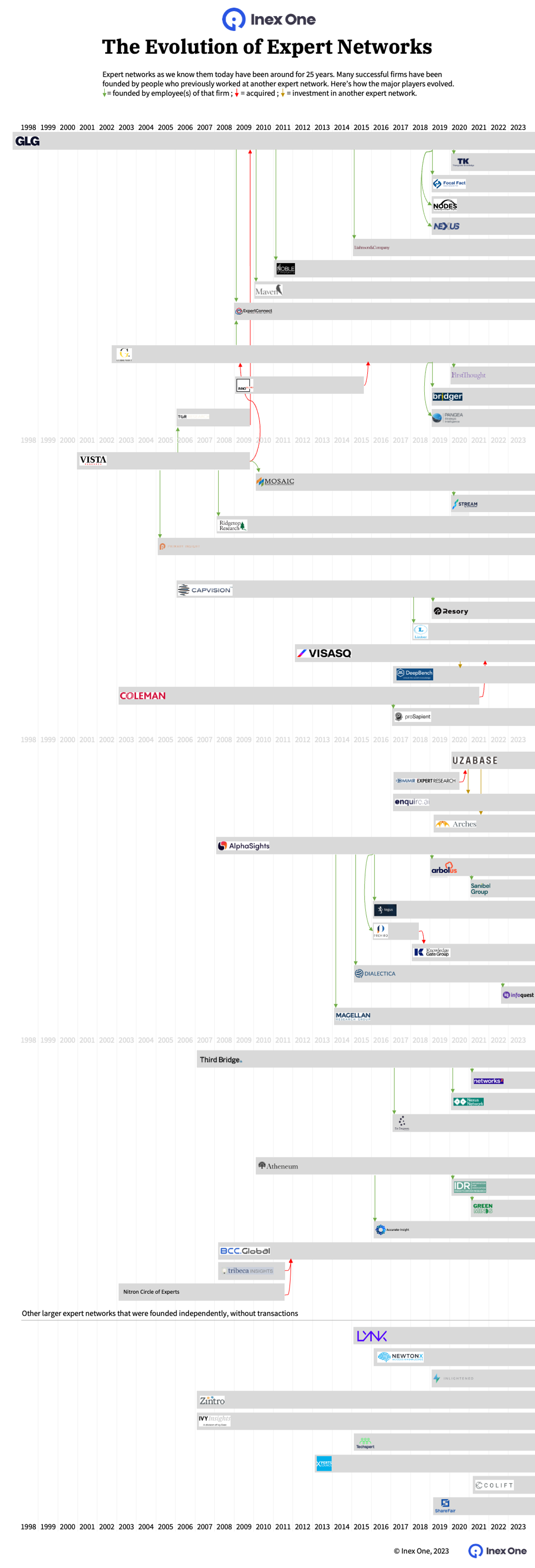08 May 2023
Expert network investments and upstarts

Some very successful companies were founded by people who had a fair bit of practice in their industry. Having worked at an incumbent leader, they understood the user needs and spotted untapped market opportunities.
For example, Zoom founder Eric Yuan left a cushy job as VP of engineering at Webex (Cisco). Similarly, Dave Duffield and Aneel Bhusri built and sold PeopleSoft, before leaving to create Workday. In the payments industry, Max Levchin built Affirm after co-founding PayPal.
Inex One is a case in point too, where the founding team has experience from both management consulting, expert networks, and disruptive software.
“Luck is what happens when preparation meets opportunity” - Seneca
This applies to expert networks too. The first expert networks emerged some 25 years ago and the industry has grown healthily ever since. The global expert network industry saw revenues exceed $2 Bn last year, driven by a set of innovative firms. These firms improve on the traditional expert network model with better tech, people practices, or business models (here's an explanation of different expert network business models). While industry long-timers such as GLG, Guidepoint and Coleman Research still make up a large part of the industry, those firms have been losing share for over a decade. Many of the strongest expert networks today were founded by former leaders at the traditional firms.
Our infographic below shows how the 50 largest expert networks have grown, merged, and emerged from one another.
